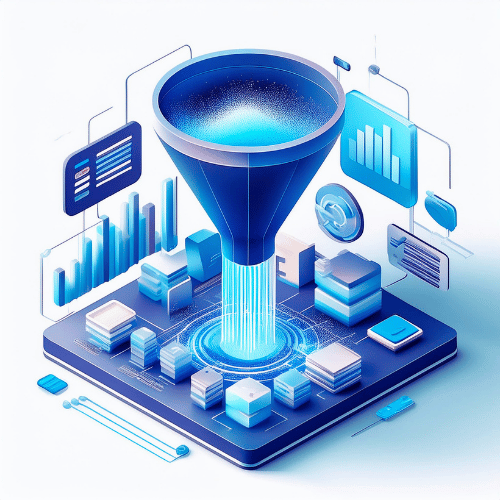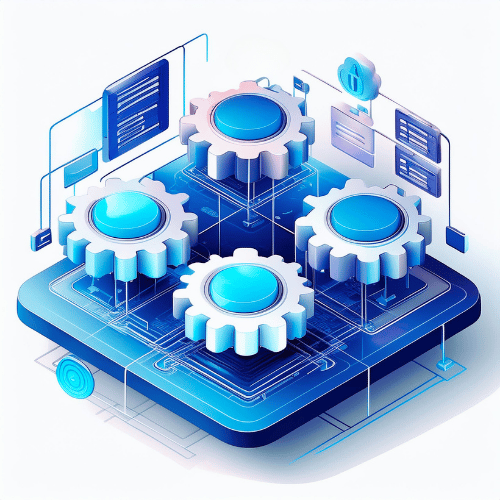Since the launch of ChatGPT two years ago, interest in intelligent personal assistants has surged, especially in marketing. Initially, organisations embraced generative AI for its potential to enhance productivity, but challenges related to task complexity and memory limitations soon became apparent, leading to lower adoption rates. In response, Agentic AI solutions are emerging to tackle these issues and revolutionise marketing functions.
INTRODUCTION
When ChatGPT dropped two years ago, it sent shockwaves through the business world. Now everyone was able to get an intelligent personal assistant to perform tasks like writing texts, doing research and helping in decision making. Marketing was one of the prime areas where GenAI was used.
People jumped on the opportunity, but quickly found GenAI is still in its infancy and has limitations, mainly around the complexity of tasks it can perform and its memory window. In recent months people have become more realistic about the applications, and we regularly see AI assistant adoption rates as low as 10% in organisations who run a pilot.
It’s a great time then to change the rules of the game once more. Agentic AI solutions are rapidly gaining momentum as they are the way to get around memory and task complexity issues. In this article, we’ll explore how Agentic AI can contribute to scaling marketing functions.
WHAT IS AGENTIC AI?

The Advantages
There are various advantages to using this approach. Agentic workflows overcome the context challenge by sharing the memory between a series of agents. They can perform more complex tasks by splitting them into smaller, more manageable chunks. Finally, agents can check each other's work and give feedback, boosting the quality of the final outcomes.
The applications and virtually unlimited. Sales can automate mundane tasks and focus on spending more time with customers, HR can automate onboarding and hiring processes, support teams can serve customers 24/7. If there is a task your team does often, it is likely a potential Agentic use case.
HOW CAN AGENTIC WORKFLOWS SUPPORT MARKETING?
Our team was early in the GenAI race, experimenting with different models and use cases. When we experiment, we use the challenges and hurdles we face internally as our use cases and this was no different. We wanted to become a lot better at marketing, in all aspects from doing research about target markets to creating great content that people liked. It produced a neat set of use cases.
1. Automated Market Research
Every marketing strategy has to be informed by solid market research. As a company with its roots in data and analytics, we live by that principle. However, research takes time, expertise and money so few companies take enough time to do this.
Agentic AI workflows offer the opportunity to automate large portions of the market research process. Agents can collect data online, analyse it relevant to a particular research question and summarise its findings in easy to digest reports. In our case we put particular emphasis on this use case, more on that later.
- Complexity: Novice
- When to Prioritise: Creating Strategic Plans
2. Content Creation
Writing good content can be time consuming and complex. Often good articles start with selecting a relevant topic, followed by doing research into the topic, to then write the blog up manually. After various iterations (and often a few days) it is ready to go online.
By deploying Agentic workflows, it’s possible to automate parts of the process and create drafts of texts to review and perfect. The Agentic workflows can be utilised to monitor market trends and opportunities, as relevant to your services. From there, they can periodically suggest new titles and do research into the topic. Based on its findings, agents can write a variety of drafts for you to choose from.
- Complexity: Intermediate
- When to Prioritise: To Execute SEO Strategies
3. Automated Customer Interactions
The speed and accuracy of your company to customers’ inquiries contributes substantially to the success in converting them into paying clients. Traditionally this is where a webchat, service team or reception comes in. They are limited to their own working hours and may already be busy with something else, making for slower responses.
AI agents can manage customer inquiries and support through chatbots or virtual assistants, providing 24/7 service without human intervention. This not only improves response times but also enhances customer satisfaction. Agents can access client files; track which products they have visited and provide superior support in less time.
- Complexity: Expert
- When to Prioritise: To Scale Commercial Operations
4. Dynamic Campaign Management
Once a company has an established marketing team, most effort will go into developing and running campaigns effectively. This involves keeping track of asset performance, launching new assets at the right time, optimising budgets and staying on top of customer engagement. Scaling those operations can be challenging as there are multiple steps and teams need to interpret data.
Agentic AI can analyse campaign performance metrics in real time, adjusting strategies based on user engagement data. For example, it can determine optimal send times for emails or modify ad placements based on current trends.
- Complexity: Expert
- When to Prioritise: Accelerate Existing Marketing Teams
CASE STUDY: AUTOMATED MARKET RESEARCH
Back in 2023 we were working on a new commercial strategy to leverage more of our innovation expertise to build small and medium sized businesses. The data driven approach we like to take made it a perfect use case to experiment with GenAI.
We seeked collaboration with Gysho and started work. Our initial testing focused only on the use of generic GenAI chats to search for information online and summarise sources. Whilst this saved work, there was an opportunity to take it one step further.
EXECUTING MARKET RESEARCH WITH AI
When we reviewed how we executed our market study, we saw that we went through multiple steps to collect, validate and analyse data, across a wide range of dimensions.

An Overview:
- Setup a range of research questions to collect the data we needed to make strategic decisions.
- Collect data with 3 different AI enabled chats( Bing, ChatGPT, Bard) manually for each question.
- Validating the data by manually checking and verifying referenced sources.
- Analysing the data gathered in round one, to find insights and determine which areas required deeper investigation.
- Define follow-up research questions and perform steps 1-4 for these additional questions.
The Variables:
In most cases, the marketing portion is stable- there is a standardised set of questions that need to be researched and analysed. Beyond that, there are only two variables:
- The context of the company that does the research.
- What the data says and how that influences deeper (level 2) research.
This gave us the realisation that we could automate large portions of the work.

HOW WE LEVERAGED AGENTS
Gysho and the Analytium team set to work to start automating the approach to market research into an Agentic workflow. We employed chronological workflows with agents using a variety of different AI models most suitable for a specific task. Examples:
1. Setting Parameters
We ask the user for 4 basic parameters, which gives the application the required context about the user’s company, location and specifics like USP’s and products. Agents take this information to transform it into a market research framework which it can study.
2. Automation with Agents
We automated the data collection process with a series of agents. Each agent team has their own tasks, like data collection, creating summaries, validating sources and giving feedback, performing analyses and more.
3. Validation of Data
Agents take the initial analysis to make decisions on next steps, they will validate data quality and replace or supplement data it is not sure about. It also defines deeper research based on what the data tells agents, to ensure it gets to that 2nd level market research.
4. Chat Function
Finally, we deployed an AI agent to make all the findings pragmatically useful. Instead of reviewing all the findings, a built-in chat agent leverages all the insights to deliver advice on strategic questions directly.
The product, MarqtAI has automated nearly all steps needed to perform a high-quality market study. In its current setup it will use a minimum of 25 validated sources for each data point, with more added if the quality is not good enough. The best part is it performs studies in an hour’s time in 20 distinct research areas. That level of speed and accuracy is impossible to achieve with a traditional team.
CONCLUSION
1.
2.
3.
INTERESTED IN LEARNING MORE?
Book a Free 30-Minute Consultation
Your business' data has potential and it can reach new heights with a Free 30-Minute Consultation from Analytium! Book a meeting with our expert, Sander De Hoogh, and get personalised insights into optimising your data strategies.
Thank you for considering Analytium. We look forward to helping you achieve your data-driven goals. Click below to schedule your consultation and start transforming your data.
During The Call, You Can Expect:
- A brief analysis of your current data challenges
- Recommendations tailored to your business needs
- An overview of how Analytium’s solutions can drive your success


